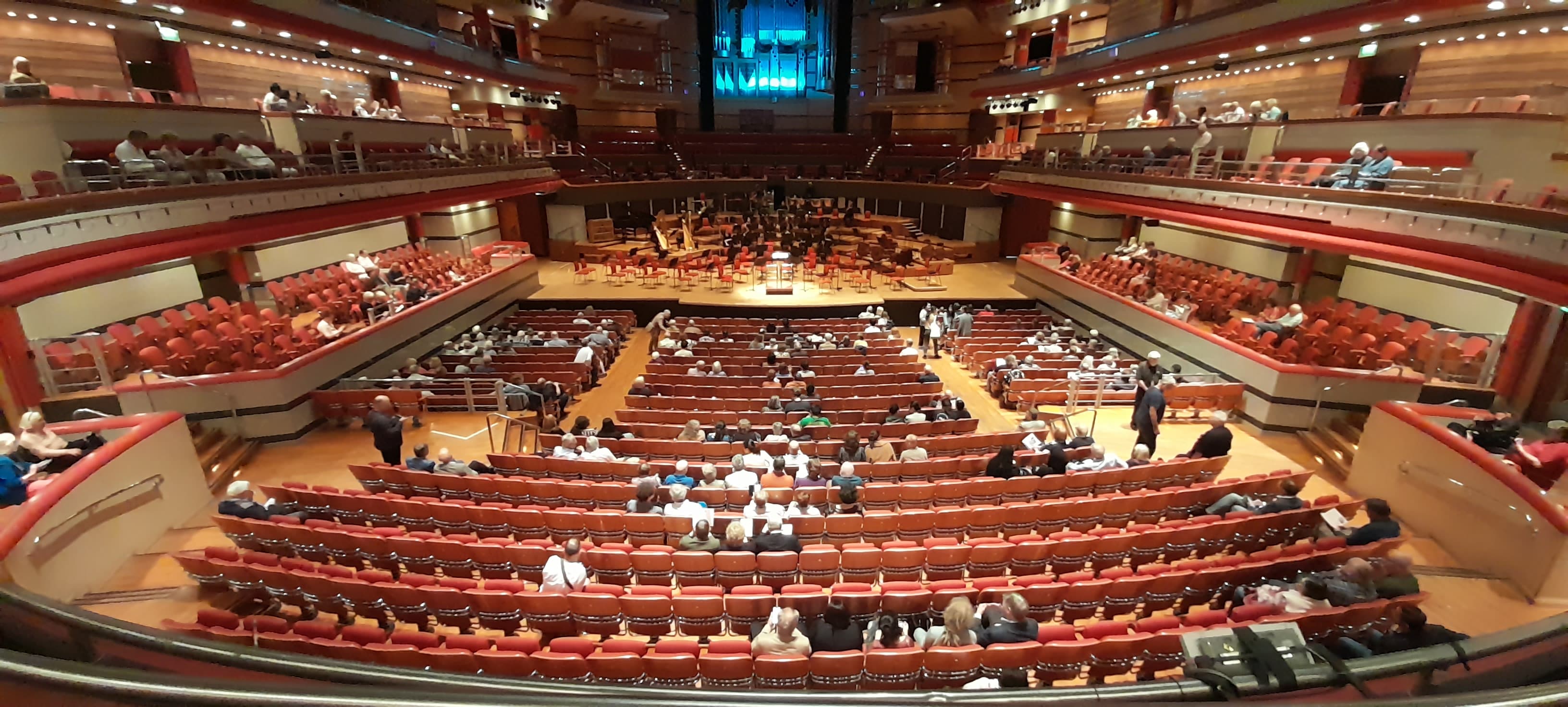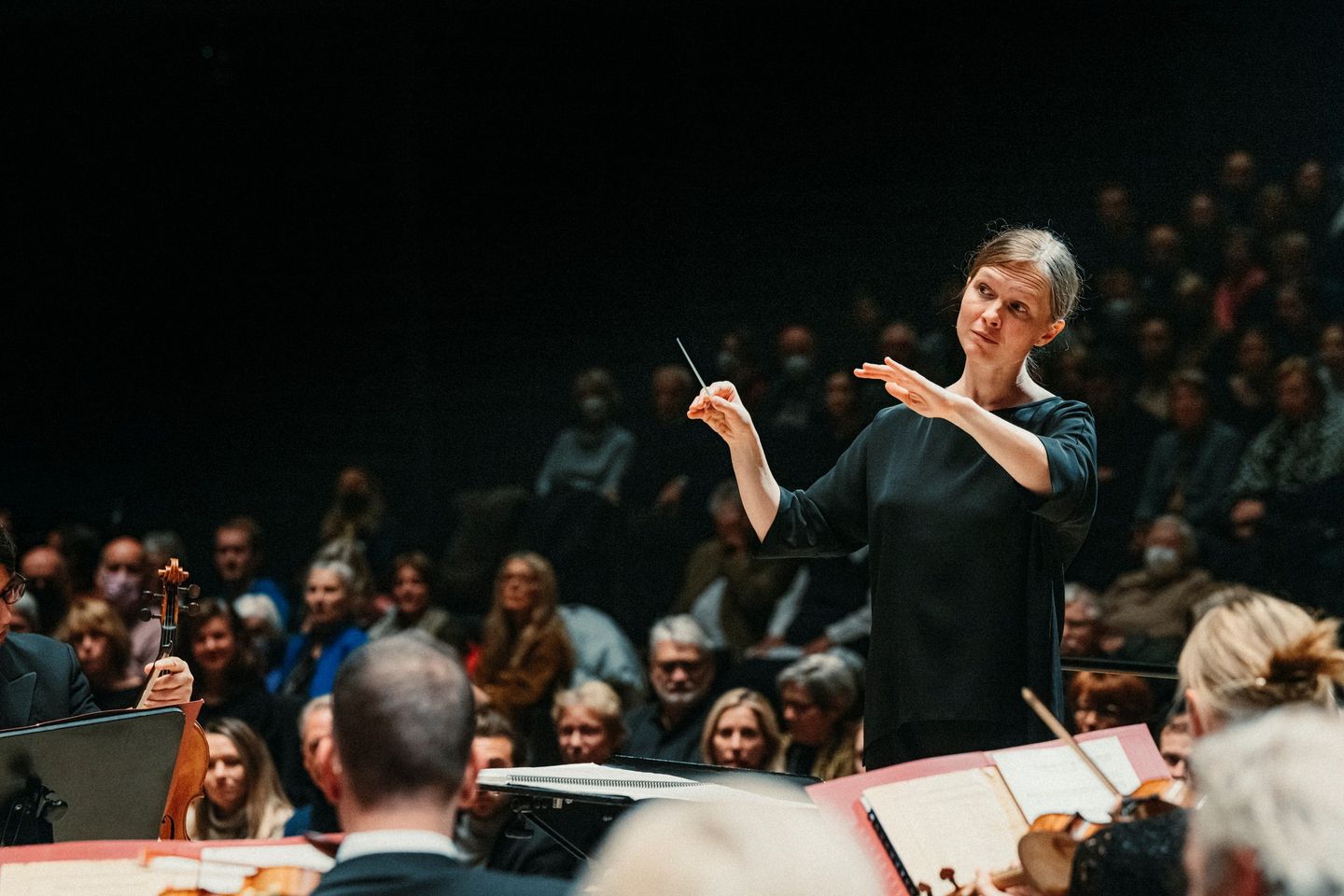How a German music school sells itself abroad
mainGermany has too many music conservatories. They need to attract foreign students, mostly on full scholarship, in order to stay open.
The Hochschule für Musik, Theater und Medien Hannover, one of the more reputable schools, has published a video on the services in provides for foreign students.
It is worth watching, chiefly for the incongruity of the music track to the video, which bears little relation to the music that is taught at the college.
Click here to watch.






It may be right that the video is not the best thing one should expect of an invitation to foreign students , made by a conservatory with the name “Hochschule für Musik, Theater und Medien” , but I vigorously reject the statement Germany has too many conservatories and has to attract foreign students, and this would work because of the scholarships . The facts are really the complete contrary: for all – German and foreign applicants – we have NOT ENOUGH conservatories!!! but very high standards for the entrance examinations. And scholarships? All our public Conservatories are free, besides some fees for organisatory services. You may look at Austria – you pay in Hannover 300+something €, per semester, i.e. half a year and you pay in Austrian conservatories ca. 30€ – and they do that , to get foreign students? This is ridiculous!!
+1!
As for “the incongruity of the music track [bearing] little relation to the music that is taught at the college”, NL seems to have missed the fact that degrees are being offered in Rock, Popular Music, Media & Music and Media Management.
No, it is a general video for foreign students who want to study in Germany. A foreign student who wants to seriously (!) study rock etc., will surely not think that Germany is the BEST place to do that. Germany has the international image – and rightly so – of the heartland of Western / European classical, serious music, the repertoire of which is made-up by composers of the Germanspeaking territory and culture (it seems to be necessary to mention this, on a music site like this?!). Entertainment may be part of that corrucilum but the video does definitely suggest that classical music is hardly a concern at the institution.
An American student who wants to study Rock, Pop, or music production without ending up 100,000 dollars in debt would certainly consider going to school in Germany. I’ve encountered American students here in Germany who have moved to study a wide range of subjects that are available back home.
Yes…. but then, the choice is primarily financial. If German conservatories want to attract those students, they should set-up pop schools, and not turn conservatories into entertainment production facturies, that is not what conservatories are supposed to be. It is like an Italian restaurant offering mainly hamburgers, or a church calling tiself a church but not offering religious services but community kongo drumming sessions or yoga classes.
There are 22 conservatories for 85 million people in Germany, which is one conservatory for every 3.8 million. All university and conservatory education in Germany is free, as it is in almost all of Continental Europe. There is no student debt on the continent, while young Americans will be burdened with heavy payments for the next 20 years of their lives.
The are more schools of music per capita in the USA even though the USA has about 1/15th the number of genuinely functional opera houses for four times the population. And about 1/20th the number of full time orchestra positions. Schools like IU and Julliard pump out opera singers and orchestra musicians by the thousands for positions that simply do not exist.
And yet these schools and most others do very little to actively advocate for a better support system for the arts — an abysmal act of social irresponsibility.
None of this is going to change for the foreseeable future because the American government is systemically dysfunctional.
Comparing conservatories per capita in the States with those in Germany is tricky. Virtually all music schools in the States are associated with a university or college and often serve only a handful of students. Conservatories in Germany are freestanding and as such serve more students each.
This is very true. And due to the small size they have faculty teaching in areas in which they lack expertise. Trumpeters teaching theory, clarinetists teaching music history, saxophonists teaching counterpoint, trombonists teaching all the brass instruments and so on.
In addition, the class oriented system of elite schools siphons off the best students and teachers and concentrates them in a few places, thus further lowering the standards of the state schools. The majority starves so the pedigree children can feast.
The smallest conservatory in Germany, Trossingen, has about 400 students, which would be a moderately large music department in the USA. Cologne is the largest and has about 5000 students if I remember right.
Each year the German orchestras need maybe 8 of each of the winds, and about 30 violins, maybe 15 violas, and so on. So yeah, one could have one super conservatory and eliminate all the others. The students could be located through rigorous testing of talent when the are between 5 and 10 years old, put into special boarding schools with iron discipline, and obligated to complete conservatory educations as the grow older.
We don’t do that, because we believe in self-determination, in people following their dreams, in people having the richest possible experience of life by pursuing the arts if they choose, and people acting based on their own sense of hope and faith in themselves. So Germany needs its 22 conservatories. And they need their large number of foreign students to show to the world what Germany stands for. Maybe the USA and the UK should do the same thing.
In the Netherlands, by way of exception, conservatories are not free: students can get a loan which binds them for 30 years or more. Two reasons for this: 1) classical music is, in a populist country, a mere hobby for the elite and 2) Holland does not feel itself being European (and indeed it is not).
Not to mention horrendously in debt.
“All university and conservatory education in Germany is free […]”
Not quite. Some schools charge fees for certain advanced and/or post graduate degrees (when applicable, usually €1.000 – €1.500; nowhere near to what American universities are charging) and the Hochschule für Musik und Theater “Felix Mendelssohn Bartholdy” in Leipzig is the first (and I believe so far the only) music school/conservatoire to charge fees from students who aren’t citizens of an EU member state (€1.800 per semester).
They pay these fees when they want a second undergrad or second graduate degree. It’s a measure to keep people from becoming what German’s call “professional students.” It’s not unreasonable, and even at that, the fees for second degrees are chicken feed compared to schools like Oberlin and many others that cost $60k per year.
The rules vary slightly, however, from state to state. I could well imagine East Germany placing fees on foreigners, even if not very large. The principle that universities should avoid classism remains strong.
Meanwhile, the video has been removed.